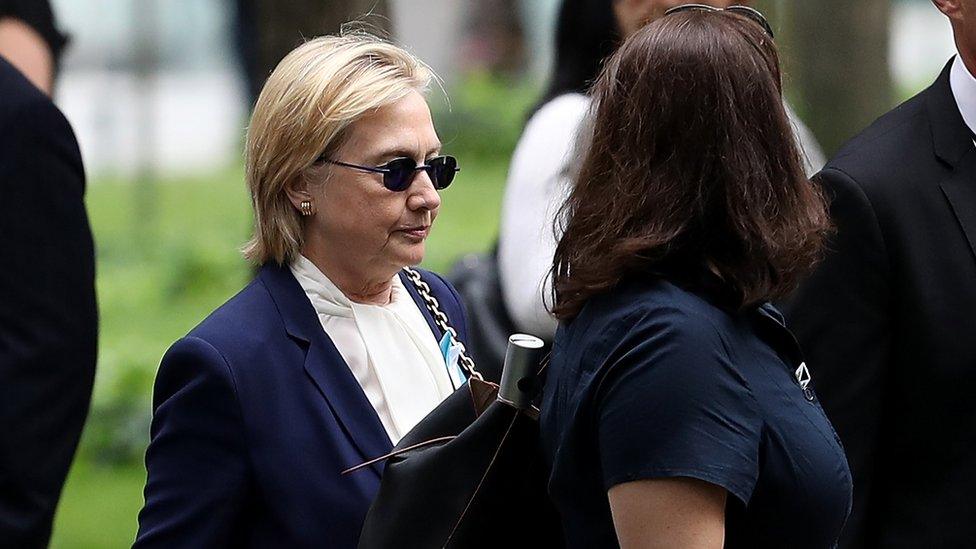Walking pneumonia: How serious is Hillary Clinton's condition?
- Published

Hillary Clinton is suffering from a mild form of pneumonia
Hillary Clinton was suffering from "walking pneumonia" when she buckled and lost her balance as she left the 9/11 memorial ceremony on Sunday, it has been revealed.
Medical professionals were quick to point out that the condition can be remedied quickly.
But what is walking - or atypical - pneumonia and how serious a setback is it for US Democratic presidential candidate?
What is 'walking pneumonia'?
Pneumonia is an infection of one or both lungs and is usually caused by bacteria. As the body attempts to fight the infection, the airways become inflamed and fill up with fluid. The disease is most dangerous among the young and the elderly.
Walking pneumonia is a non-medical term used to describe a mild form of pneumonia, which is often the result of an inhalation of bacteria such as Streptococcus pneumoniae or Mycoplasma pneumoniae.
The symptoms of the infection can vary in severity.
This content is no longer available
How serious is it?
Walking pneumonia is so mild that it can often be mistaken for a cold. Sufferers, although unwell, may feel healthy enough to continue to work. It rarely requires hospitalisation and can be cured in as little as a week.
In fact, Mrs Clinton said after emerging on Sunday from her daughter's home in New York: "I'm feeling great. It's a beautiful day in New York."
What are the symptoms?
The condition causes coughing and sneezing and can result in fever-like symptoms, a high temperature, headaches and difficulty breathing - which can lead to dizziness and exhaustion. It also causes dehydration.
Who is at risk?
Anyone can contract pneumonia, which affects millions of people each year. Those who have respiratory health conditions such as lung disease or asthma are at risk of more severe manifestations of the illness.
The disease is contagious and spread through close contact, transmitted through sneezing or coughing. However the contagious period usually lasts less than 10 days.
As a presidential candidate, Mrs Clinton was at high risk of infection, according to Dr William Schaffner, an infectious diseases specialist at Vanderbilt University School of Medicine.
"Candidates are constantly out in enclosed spaces, face to face with myriads of people,'' he said. "It's an ideal opportunity for the transmission of a respiratory virus."
How is it treated?
In contrast to the more serious form of the condition, walking pneumonia can usually be treated effectively with a prescription of antibiotics taken at home with rest and by drinking plenty of fluids.
Mrs Clinton's doctor said in a statement that she had been prescribed antibiotics and advised to rest and modify her schedule.
- Published12 September 2016

- Published11 September 2016
